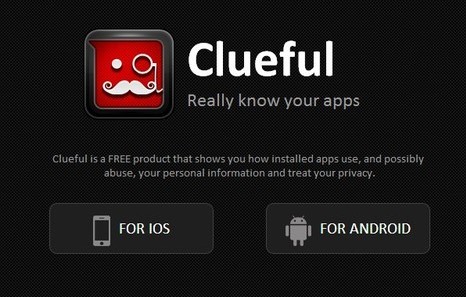
.
Image credit: http://www.ogilviedesign.co.uk/www.ogilviedesign.co.uk/Welcome.html
.
.
WHY CyberSecurity STARTS At Home AND Is Concerning ALL Of Us
![]() WE can’t say any more that CyberSecurity is ONLY for IT-Experts as the internet is a shared ecosphere where every body has responsibility! Actions of some people can easily affect everyone else, thus meaning: WHEN NOT having installed protection software (updated antivirus) YOUR computer and/or smartphone(s) could get infected by malware and YOU will infect ALSO OTHERS who are in contact with YOU; it will become epidemic!
WE can’t say any more that CyberSecurity is ONLY for IT-Experts as the internet is a shared ecosphere where every body has responsibility! Actions of some people can easily affect everyone else, thus meaning: WHEN NOT having installed protection software (updated antivirus) YOUR computer and/or smartphone(s) could get infected by malware and YOU will infect ALSO OTHERS who are in contact with YOU; it will become epidemic!
.
Click the above image to access the article, please.
.
Click the above image to access the article, please.
.
Learn more about the “Internet of Things“:
- http://www.scoop.it/t/21st-century-learning-and-teaching/?tag=Internet+of+Things
- http://www.scoop.it/t/securite-pc-et-internet/?tag=Internet+of+things
- …
How To Take OUR Responsibility!? Let’s make CyberHygiene!
Well, that’s actually NOT that difficult, it’s ONLY the first steps who could be unusual and WE need to get used to it. BUT that’s the same with any other first time, isn’t it 😉
========> WE call it CyberHygiene. <=========
.
French (Français): Danger connu est danger vaincu ! Mieux vaut prévoir que valoir ! Un enfant averti en vaut deux. English: Forewarned is Forearmed! Deutsch (German): Gefahr erkannt is Gefahr gebannt! Vorsicht heisst die Mutter der Porzellankiste!« Good habits formed at youth make all the difference. » Aristotle |
.
SO, let’s go for it, check below please:
.
Click the above image to access the article, please.
Global Impact Of CyberSecurity
Let us have a look ALSO about WHAT the EU and the US are saying about CyberSecurity, so that YOU know about the IMPORTANCE, check below, please.
.
Click the above image to access the article, please.
.
Click the above image to access the article, please.
.
THE HowTo For BEST Protection
 Please find below the BEST possible protection as well as tips for individuals (for companies there would be much more…) explained step by step with a minimum use of technical language so that YOU might be able to understand it and to use it comfortable:
Please find below the BEST possible protection as well as tips for individuals (for companies there would be much more…) explained step by step with a minimum use of technical language so that YOU might be able to understand it and to use it comfortable:
.
.
1.What are the biggest security threats to kids?
Learn more about: 1.What are the biggest security threats to kids?
- http://www.connectsafely.org/wp-content/uploads/securityguide.pdf
- http://www.scoop.it/t/best-freeware-software
-
Are There Cyber-Security Dangers With Apps And What’s About Privacy?
- http://www.bee.lu/
- https://www.bee-secure.lu/fr/clever-klicken
- …
2. How do I talk with my child about security?
Learn more: 2. How do I talk with my child about security?
- to be updated… Will get discussed in detail in my new blog post…
- …
- …
- …
3. How do we protect our family’s computers?
Learn more: 3. How do we protect our family’s computers?
- Cyber-Security PracTICE-Learn it in one week
- Visual Cyber-Security: See Attacks On Real Time
- Cyber-Security is easy / Get THE right reflexes!
- Protéger son ordinateur, mais pourquoi ?
- …
4. How do we protect our mobile devices?
Learn more: 4. How do we protect our mobile devices?
- http://www.scoop.it/t/apps-for-any-use-mostly-for-education-and-free/?tag=Mobile-Security
- https://www.bee-secure.lu/fr/outils/campagnes/clever-klicken/th%C3%A8mes/smartphone
- …
- …
5. Why do we always hear “Never share your passwords”?
Learn more: 5. Why do we always hear “Never share your passwords”?
- https://www.cases.lu/mot-de-passe.html
- http://www.scoop.it/t/21st-century-learning-and-teaching/?tag=Passwords
- …
- …
AND Don’t Forget About Privacy!
You’d be surprised how many things an app can learn about you and what you do. Without you ever knowing it.
Clueful is the only way to really understand iOS apps, how they use your private data and treat your privacy. This one-of-a-kind product identifies intrusive applications and shows you what they do behind your back.
.
.
Learn more in my blog post: ===> Digital CitizenShip: Social Media AND Privacy <===
.
-
- Cyber-Security PracTICE-Learn it in one week
- Visual Cyber-Security: See Attacks On Real Time
- Cyber-Security is easy / Get THE right reflexes!
- Dangers of WiFi in public places
- ICT Awareness: What YOU SHOULD KNOW!
- Often Asked Questions: Are WE Becoming Too Paranoid About Cyber-Security?
- Often Asked Questions: WHO Are The Countries With Most Hosted Malware Servers And OTHER Cyber-Problems!?
- Often Asked Questions: Are There Cyber-Security Dangers With Apps And What’s About Privacy?
- Often Asked Questions: I Have Installed An Anti-Virus And A Firewall, Am I Protected NOW!?
- Digital CitizenShip | Internet Safety And Cyber Security Advisory Board Run by Students
- …
.
.
Keywords necessary for me to create this blog post: #FSCD promoted by EDU as Homework, ideas, Social Media, twitter, Facebook, CyberHygiene, reflexes, digital citizenship, digcit, eSkills,
.
|
The author Gust MEES is ICT Course Instructor, ”Member of the Advisory Board” from “Luxembourg Safer Internet” (LuSI), BEESECURE, Official Partner (Consultant) from the Ministry of Education in Luxembourg, project “MySecureIT“, Official Partner from the Ministry of Commerce in Luxembourg, project “CASES” (Cyberworld Awareness and Security Enhancement Structure). |
.
Stay tuned for next blog posts 😉
.




























8 responses to “WHY CyberSecurity STARTS At Home AND Is Concerning ALL Of Us”